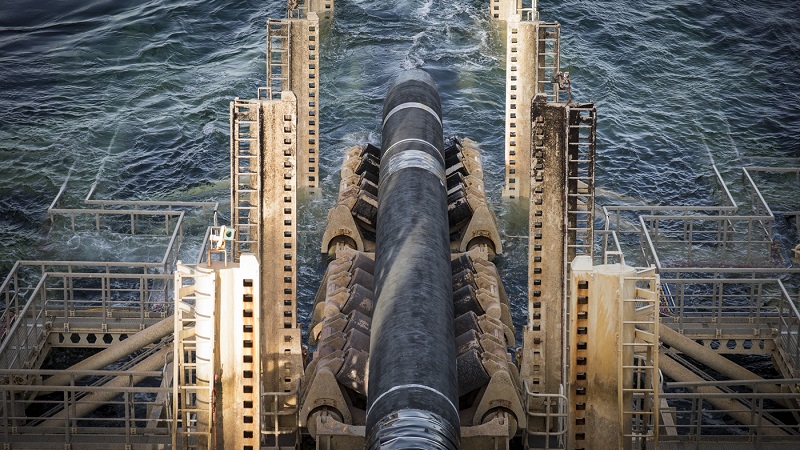Europe needs to acknowledge that its future is no longer with fossil fuels, said the president of the European Investment Bank as he presented the bank’s 2020 results on Wednesday.
“To put it mildly, gas is over,” Werner Hoyer said at a press conference on the EIB’s annual results.
“This is a serious departure from the past, but without the end to the use of unabated fossil fuels, we will not be able to reach the climate targets,” he added.
The EU aims to reach net zero emissions by 2050 and is expected to adopt a new carbon reduction target of -55% for 2030. However, gas has remained a grey area, with the European Commission saying it will still be needed to help coal-reliant EU member states transition away from fossil fuels.
Under its climate bank roadmap published in 2020, the EIB plans to use 50% of its activity to support climate and environmental sustainability, unlocking €1 trillion for green funding by 2030. It will also ensure that all activity is aligned with the Paris Agreement.
Gas has limited support under the EIB’s climate roadmap. Only power plants emitting less than 250 grammes of CO2 per kilowatt-hour are currently eligible for support under the bank’s rules and the EIB intends to pursue its decarbonisation policy by phasing out all funding for fossil fuels before the end of the year.
Joe Biden is sworn in as US president, promising climate action
Funding for large-scale heat production based on unabated oil, natural gas, coal or peat, upstream oil and gas production or traditional gas infrastructure will all be stopped by 1 January 2021, the EIB explained.
Instead, more finance will go towards energy efficiency projects, renewable energy projects, green innovation and research, Hoyer said.
The roadmap also outlines the EU bank’s intention to support both green hydrogen – generated from renewable electricity – and so-called “low-carbon hydrogen” produced either from nuclear power or natural gas with carbon capture technology.
However, while the EIB aims to end its support for fossil fuels by the end of the year, there is more that needs to be done for it to be the EU’s climate bank, according to CEE Bankwatch, a network of environmental NGOs operating in central and eastern Europe.
“In the transport sector, for instance, the EIB could still support motorways and expressways at a time when private vehicles with internal combustion engines urgently need to be restricted, not encouraged,” said Anna Roggenbuck, policy officer at CEE Bankwatch.
Roggenbuck also criticised the roadmap for lacking guidance on the selection of trustworthy clients and financial intermediaries. A previous Bankwatch analysis showed that between 2013 and 2019, the EIB provided €4.7 billion of EU public money to companies with high shares of coal in power and heat generation.
“This policy loophole needs to be closed to ensure the EIB is no longer bankrolling the climate crisis, even if indirectly,” she said.
Rich nations accused of inflating climate adaptation finance figures
2020 was a “difficult and crucial” year, according to Hoyer. Brexit was expected to be the biggest hurdle, but the Covid pandemic is what challenged the EIB in its ambition to become “Europe’s climate bank”.
Despite this, the share of climate and environmental financing rose from 34% to 40% of the EIB’s total, bringing the bank closer to its 50% target.
“We have achieved unprecedented impact on climate, preparing the ground for much more. But the risk of a recovery that neglects climate and the environment remains,” said Hoyer.
“The fight against climate change cannot wait until the pandemic is over. The Covid crisis is not a reason to stop tackling the climate and environmental challenges facing humanity,” he added.
The EIB warns there is a growing investment gap, which threatens the EU’s ambition for a green recovery. According to a report due to be published on Thursday, 45% of EU companies expect to reduce investment because of the pandemic.
“The European Union is in danger of losing ground in the global competition if it does not mobilise more money for innovation,” Hoyer said.
This story was produced by Climate Home News’ media partner Euractiv.
